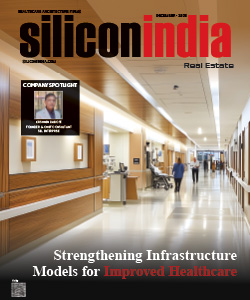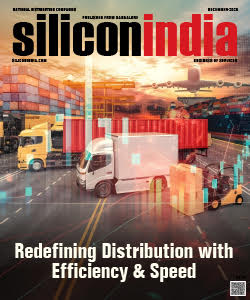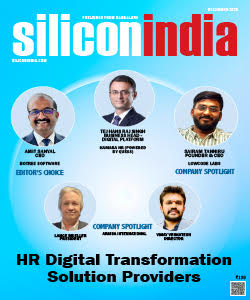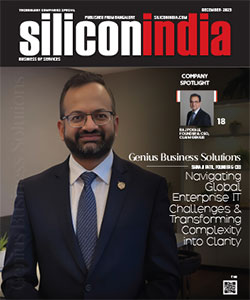The Virtual Workplace: Latest Workplace Trends Post the Covid Pandemic
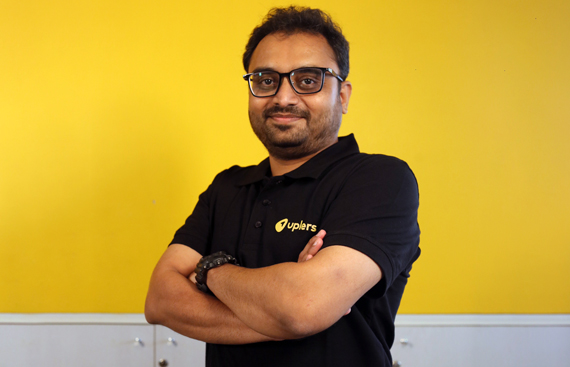
Holding an MBA in Systems from Symbiosis International University, Bhuvan has over 18 years of experience in the areas of Software Development, Agile Methodologies, Process Improvement, Project Management and Marketing Automation. He has had successful stints with diverse companies such as Torrent Power, BMC Software, Darshan Softech, CCT Solutions, Communication Crafts and Email Monks, prior to joining Uplers in 2019.
Siliconindia recently got an opportunity to interact with Bhuvan Desai, VP - Client Operation, Uplers, wherein he shared his insights on the latest workplace trends and various other related aspects. Below are the excerpts from the exclusive interview
Throw some light on the major work culture changes among Indian organizations post the covid pandemic.
There had been a tremendous shift in the work cultures among Indian companies post covid. People have realized the importance of maintaining a good work-life balance while working remotely and are able to be more productive in their work matters. Similarly, companies too have now realized the real value their employees hold and are thus making every effort necessary to ensure that all their employees’ needs & expectations are met to the fullest. Culture is now one of the most prominent aspects of every organization, and diversity & inclusion have gained significant importance post the pandemic. This has enabled businesses to have a wide range of views, opinions and feedback on every matter, which has enabled them to make better decisions in recent times. Also, technology adoption has increased manifold across every organizational function post the pandemic, wherein companies are increasingly adopting automation technologies to reap optimum results.
How is technology redefining the way both employees and companies function in recent times? Explain with use cases.
Today’s modern day technologies have had a massive impact on every workplace function, and Generative AI has further accelerated technology adoption, especially in terms of automation. While AI is enabling companies to automate the majority of their processes and simplifying their decision making process, web 3.0 technologies have witnessed an even better adoption rate due to the recent remote working practices. Some of the major use cases for these technologies in terms of remote working are virtual documentation, digital collaboration, real time communication & collaboration across the organization and many others. Also, technologies like blockchain are reshaping the way companies used to approach data privacy earlier by helping them store & manage their data more securely. Furthermore, edge computing has multiplied the speed at which data was being processed, thus enabling organizations to make better data-driven decisions in the quickest time frame.
Share your thoughts on emerging workplace trends such as remote working and hybrid working.
What began as a temporary measure during the covid pandemic, remote working has now become mainstream across a majority of the organizations. Although hybrid/flexible did exist prior covid as well, remote working is now among one of the top priorities of employees across almost every industry due to the diverse flexibility of options it offers. Also, many organizations now do not have any fixed work timings and leave it to their employees’ convenience, which has played a significant role in the employees having a proper work-life balance. Lastly, another key trend that is gaining widespread prominence among gen-Z millennials in recent times is workation, wherein employees are now going on vacations to any place of their choice and carrying-out their daily work matters remotely with the help of latest communication and collaboration tools. This has not only spared employees of the hassles of taking long leaves, but also taking workplace productivity to an all-time high.
Tell us about a few measures both employees and organizations must undertake in a remote/hybrid working environment.
It is paramount for both employees and the organization to be responsible for matters relating to remote working. Also, companies must also analyze if a particular employee is remote-ready because not all employees possess the necessary skill sets – both technical and soft skills – that are necessary to perform in a remote working environment. Remote readiness has to be one of a new skill set to be added or pursued or developed by employees who wish to stay remote. Also, it is very important for the company to have a clear line of communication across the organization irrespective of whether an employee is working from the office or elsewhere. The frequency with which a top leadership communicates to the frontline employees should be much higher than it is required in an office workspace. Town hall becomes a mandate and has to be too frequent. Furthermore, since they might be working from far-off regions, employees must inculcate the habit of self-analysis among themselves. This will go a long way in enhancing their productivity levels and achieve faster career growth.
How do you visualize the working models in the near future?
Organizations worldwide are slowly recovering from the onslaught of the covid pandemic and are now gradually asking their employees to start working from office like earlier times. However, keeping in mind the expectations of today’s gen-z workforce, many organizations are now offering hybrid working options to their employees, wherein they are mandated to come work from the office for a specific number of days every week according to their convenience. This infusion of remote working and flexible working has been one of the most significant workplace trends in recent times due to the impact it will have on both business productivity as well as employees’ personal & professional growth.
Read More News :
Technology to Reshape the Financial Services Ecosystem in India

.jpg)
